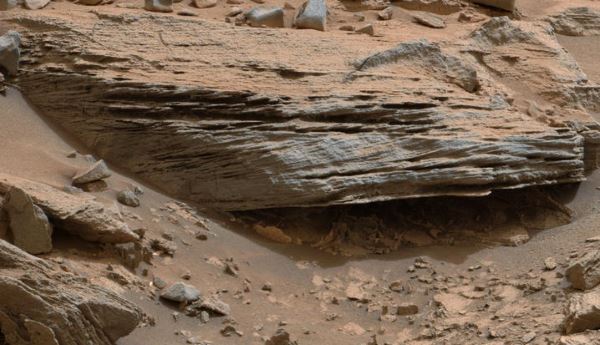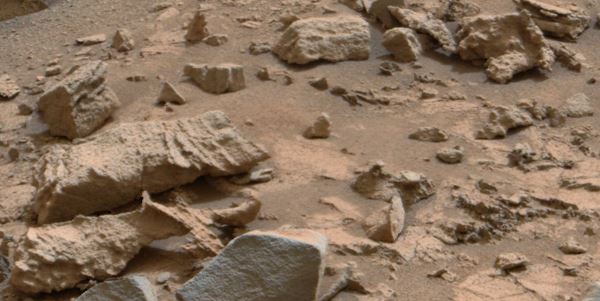By Jeff Ammons
Page 1 | Page 2 | Page 3 | Page 4 | Page 5 | Page 6 | Page 7

Sarah stroked the rounded rock with a heavily gloved hand. The thick material and pressurization of the suit made it difficult to feel any but the greatest contrasts of texture.
This rock was smooth. Her hand met little resistance as she brushed away the fine film of settled dust.
She tried to imagine how this place must have looked when water flowed down from the mountains.
Was it green? Were there plants? Had Mars ever known a flower? What might have pollinated the flower?
Sarah stood and dusted her hands sending faint wisps of the micro-fine dust drifting in the thin air.
No one in the history of humankind had known whether or not Mars had ever supported life, but Sarah was here to find out.
She cross checked her wrist-display and helmet screen to confirm her O2 supply. 18 hours. Number Seven carried another 24 hour supply. The Rover, 2 kilometers upstream, held another 72.
Sarah pressed the rocker-switch next to the wrist display and felt the satisfying click even through the glove. A little whistle in her helmet confirmed the success.
Seven came prancing through the dust. The robotic mule raised little puff clouds with each dancing step.
Seven stopped two meters from Sarah and momentarily shifted in place before finding a balance it liked, lowering a bit, and locking down its joints. Servos and motors powered down to conserve power. Now it transitioned from pack mule to field laboratory.
Sarah began to unpack gear. She grabbed her rock hammer and a collecting box before moving across the bed of the desiccated river.

The tumbled rocks in the bed were smooth, but the banks held tell-tale striations that told a story of ancient sediment deposits that had hardened into stone before being sliced like a layer cake by the fast flowing water of a later epoch.
To find life you can’t see the terrain as it is. You have to see how it was several “befores” ago.
You have to know that in a body of water with little current EVERYTHING sinks into the muck below. It takes energy to avoid that muck.
When marine animals die, they drift like snowflakes in a forest to that all-encompassing muck.
Times change and oceans die. The muck dries and hardens into stone. In that stone lies entombed the entirety of species from their first mutations to their final demise.
Fast running water eons ago did the work of the heavy machines Sarah lacked, plowing a deep furrow through the sedimentary stone birthed by the long dead ocean.
